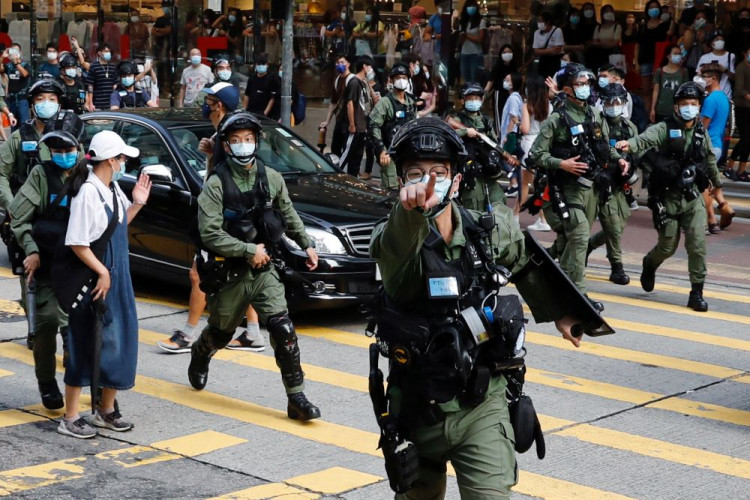A Hong Kong court convicted 14 pro-democracy activists on Thursday in what has become the city's most significant national security case. This trial highlights the intense scrutiny and stringent measures authorities are using to suppress dissent in the once-vibrant city. The verdicts have drawn sharp criticism from international observers, further straining Hong Kong's reputation as a global financial hub.
The court found the activists guilty of conspiracy to commit subversion under the national security law imposed by Beijing. This controversial law has been a point of contention since its inception in 2020, following the massive 2019 protests that called for greater democratic freedoms and accountability. The court's decision emphasized that the activists' plan to hold an unofficial primary election posed a serious threat to the government's authority and could have led to a constitutional crisis.
Among those convicted were prominent former lawmakers Leung Kwok-hung, Lam Cheuk-ting, Helena Wong, and Raymond Chan. These individuals, along with others, faced allegations of attempting to paralyze the government by securing a legislative majority to veto budgets, an act that the court deemed subversive. The verdict detailed that their actions would have severely hampered the implementation of new government policies, creating a constitutional crisis for Hong Kong.
Two defendants, former district councilors Lee Yue-shun and Lawrence Lau, were acquitted. The court concluded that there was insufficient evidence to prove their intent to subvert state power. Despite their acquittal, the prosecution has indicated plans to appeal against these decisions. Both Lee and Lau expressed relief and gratitude to their supporters but remained under bail pending further legal proceedings.
The significance of this trial cannot be overstated. The 47 activists initially charged included notable figures such as legal scholar Benny Tai and former student leader Joshua Wong. While 31 of the defendants pleaded guilty, those who stood trial have become symbols of resistance against the national security law. Amnesty International's Sarah Brooks described the mass conviction as "the most ruthless illustration yet of how Hong Kong's national security law is weaponized to silence dissent."
Observers have noted that this trial and its outcomes reflect Beijing's tightening grip on Hong Kong, undermining the "one country, two systems" framework promised when the city was handed back to China in 1997. This framework was supposed to preserve Hong Kong's Western-style civil liberties for 50 years. However, the increasing use of the national security law to stifle political opposition suggests a significant departure from this promise.
The trial's conclusion saw heavy security around the High Court, with police officers and vehicles patrolling the area. Supporters and diplomats from countries including the United States, Australia, and Britain were present, highlighting the international concern over Hong Kong's judicial independence and political freedoms. Australia's Foreign Minister Penny Wong expressed "deep concern" over the verdicts, reflecting a broader sentiment of dismay among Western governments.
In the aftermath of the verdicts, Beijing voiced its support for Hong Kong's judicial process, dismissing international criticism as interference. The Chinese government maintains that the national security law has restored stability and order to the city, a claim contested by many human rights organizations and democratic advocates.
The origins of this case date back to an unofficial primary election in June 2020, organized to select the strongest pro-democracy candidates for an upcoming legislative election. The primary drew an unexpectedly high turnout of 610,000 voters, signifying substantial public support for the pro-democracy movement. However, the government postponed the legislative election, citing the COVID-19 pandemic, and subsequently overhauled electoral laws to ensure a pro-Beijing majority.
As Hong Kong's political landscape continues to evolve under the shadow of the national security law, the implications of this landmark trial will likely resonate for years to come. The convicted activists now await sentencing, which could range from three years to life in prison, depending on the severity of their alleged crimes. The next court hearing is tentatively scheduled for June 25, where the convicted will have the opportunity to present mitigating arguments before final sentencing.






